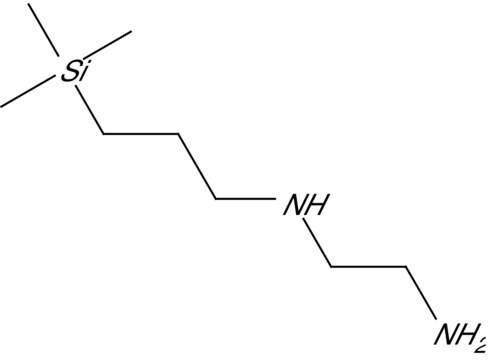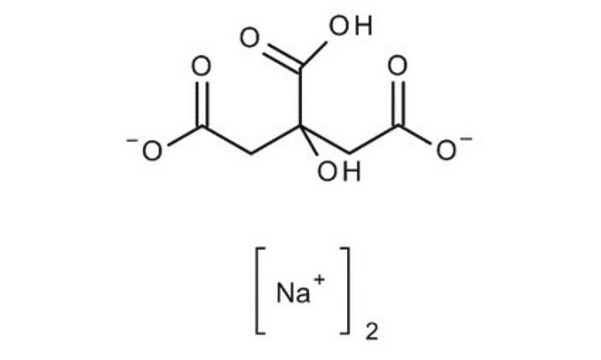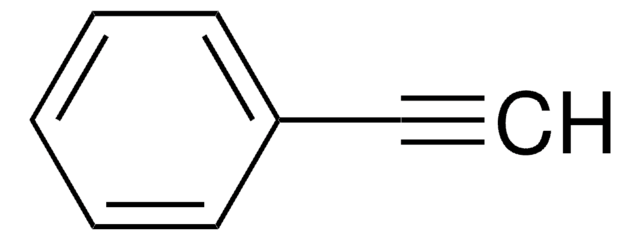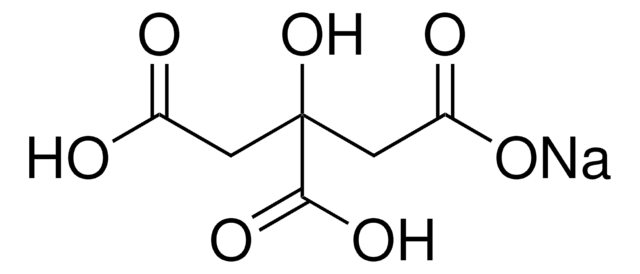Key Documents
359084
Sodium hydrogencitrate sesquihydrate
ReagentPlus®, 99%
Synonim(y):
Citric acid disodium salt, Citric acid disodium salt sesquihydrate, Di-Sodium hydrogen citrate sesquihydrate, Disodium hydrogen citrate sesquihydrate, Sodium citrate dibasic sesquihydrate
About This Item
Polecane produkty
Poziom jakości
linia produktu
ReagentPlus®
Próba
99%
Postać
solid
mp
149 °C (dec.) (lit.)
grupa funkcyjna
carboxylic acid
ciąg SMILES
O.O.O.[Na+].[Na+].[Na+].[Na+].OC(=O)C(O)(CC([O-])=O)CC([O-])=O.OC(=O)C(O)(CC([O-])=O)CC([O-])=O
InChI
1S/2C6H8O7.4Na.3H2O/c2*7-3(8)1-6(13,5(11)12)2-4(9)10;;;;;;;/h2*13H,1-2H2,(H,7,8)(H,9,10)(H,11,12);;;;;3*1H2/q;;4*+1;;;/p-4
Klucz InChI
HGPVLOQNBSHYEI-UHFFFAOYSA-J
Powiązane kategorie
Zastosowanie
Informacje prawne
Kod klasy składowania
13 - Non Combustible Solids
Klasa zagrożenia wodnego (WGK)
WGK 1
Temperatura zapłonu (°F)
Not applicable
Temperatura zapłonu (°C)
Not applicable
Środki ochrony indywidualnej
Eyeshields, Gloves, type N95 (US)
Wybierz jedną z najnowszych wersji:
Masz już ten produkt?
Dokumenty związane z niedawno zakupionymi produktami zostały zamieszczone w Bibliotece dokumentów.
Klienci oglądali również te produkty
Nasz zespół naukowców ma doświadczenie we wszystkich obszarach badań, w tym w naukach przyrodniczych, materiałoznawstwie, syntezie chemicznej, chromatografii, analityce i wielu innych dziedzinach.
Skontaktuj się z zespołem ds. pomocy technicznej










